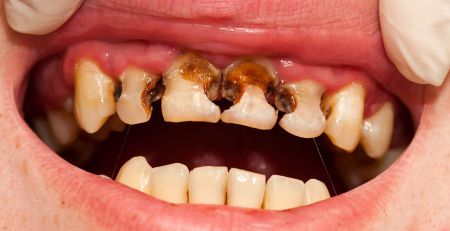Chewing gum has long been a popular pastime, but did you know it can benefit oral health? From stimulating saliva production to preventing tooth decay, chewing gum offers more than a refreshing flavour.
Saliva Stimulation
Chewing gum, particularly sugar-free varieties, is highly beneficial for oral health, primarily due to its capacity to stimulate increased saliva production.
Saliva is critical in maintaining oral hygiene serving several vital functions.
Firstly, it helps neutralize harmful acids in the mouth, which are produced when bacteria break down food particles. These acids can erode tooth enamel and lead to cavities if not effectively neutralized.
Secondly, saliva contains essential minerals like calcium and phosphate, which aid in remineralising tooth enamel. This process helps to strengthen teeth and combat the early stages of tooth decay.
Additionally, chewing gum helps remove food particles and bacteria from the teeth and gums, effectively cleansing the mouth. This increased saliva flow, triggered by chewing gum, keeps the mouth hydrated and ensures a more balanced and healthier oral environment, reducing the risk of dental issues and promoting overall oral health.
Enhanced Dental Cleaning
Engaging in chewing stimulates a mechanical process that aids in dislodging and removing food particles and debris trapped in the teeth and gum line. This action is especially beneficial in reducing the likelihood of plaque accumulation, a key factor in developing dental caries and gum disease.
Beyond just cleaning, chewing sugar-free gum also enhances the aesthetic appearance of your teeth.
It assists in gently scrubbing off surface stains that can accumulate from consuming certain foods and beverages, contributing to a brighter and more appealing smile.
Thus, incorporating sugar-free gum into your oral care routine can be a convenient and effective way to maintain cleaner teeth and a healthier mouth between traditional brushing sessions.
Increased Salivary pH
Chewing gum, especially sugar-free varieties, significantly enhances oral health by increasing the pH level in the mouth.
When we chew gum, there’s a natural increase in saliva production, which raises the mouth’s pH level to a more alkaline state.
This shift towards alkalinity creates an environment less conducive to the growth of harmful oral bacteria, which prefer acidic conditions.
Reducing the acidity in the mouth significantly lowers the risk of tooth decay and gum disease.
This is because a higher pH level helps neutralize harmful acids produced by bacteria, thus protecting the enamel and preventing the formation of cavities.
Additionally, a mouth with a balanced pH is less likely to experience gum inflammation and other periodontal issues, fostering overall oral health in the long term.
Therefore, incorporating chewing gum into your oral hygiene routine can be a simple yet effective strategy to maintain a healthier oral environment and reduce the risk of common dental problems.
Fresh Breath and Reduced Dry Mouth
Chewing gum is a convenient and immediate solution for freshening breath and combating dry mouth.
Chewing gum stimulates increased saliva production, which plays a crucial role in maintaining oral hygiene.
Saliva helps in rinsing away bacteria that cause foul odours, thus effectively neutralizing unpleasant breath.
This increase in saliva flow not only refreshes the mouth but also assists in removing trapped food particles and bacteria that contribute to bad breath.
Moreover, chewing gum can be particularly beneficial for those suffering from dry mouth, a condition where the mouth does not produce enough saliva.
It acts as a lubricant, moisturising oral tissues and providing much-needed relief.
By keeping the mouth moist, chewing gum helps preserve a healthy balance of oral flora and prevents the discomfort associated with dry mouth.
Overall, incorporating chewing gum into your daily routine is a simple and effective way to ensure fresher breath and alleviate the symptoms of dry mouth, contributing to better oral health and comfort.

Chewing gum can be a part of a comprehensive oral care routine, contributing to better oral health.
However, it’s crucial to consider the sugar levels in gum products and opt for sugar-free options to avoid potential harm to your teeth.
By choosing sugar-free gum with added benefits like xylitol, you can enjoy the advantages of chewing gum while minimizing the risk of tooth decay and promoting a healthier mouth.
Remember to consult your nearest dentist for personalized recommendations based on your dental needs and maintain good oral hygiene practices.
References
- Dodds MW, Johnson DA, Yeh CK. (2005). Health benefits of saliva: a review. Journal of Dentistry, 33(3), 223-233.
- Sharma NC, Galustians HJ, Qaqish JG. (2019). The effects of sugar-free chewing gum on plaque and clinical parameters of gingival inflammation: A systematic review and meta-analysis. Journal of Clinical Periodontology, 46(5), 505-517.
- Furness S, Worthington HV, Bryan G, Birchenough S, McMillan R. (2011). Interventions for the management of dry mouth: topical therapies. Cochrane Database of Systematic Reviews, (12), CD008934.










